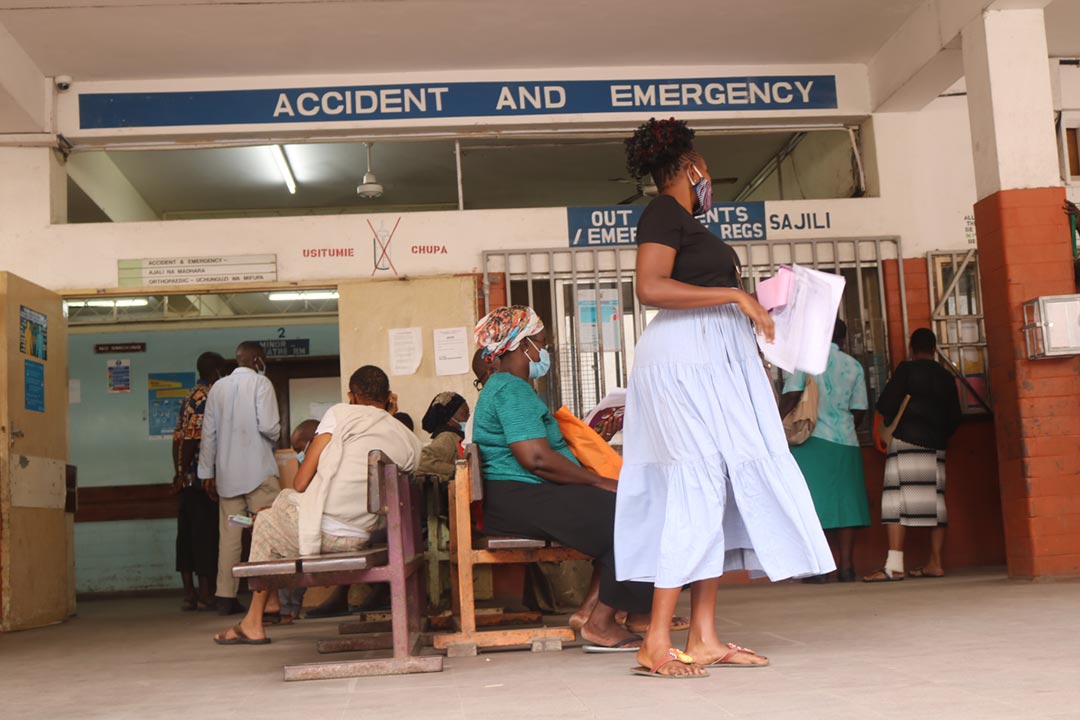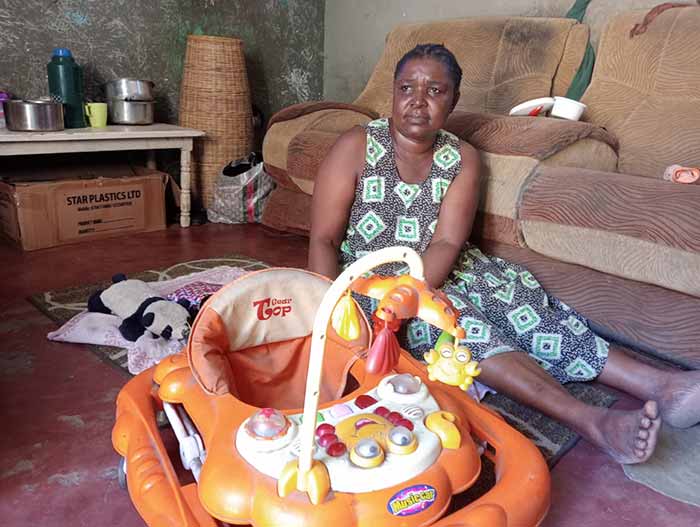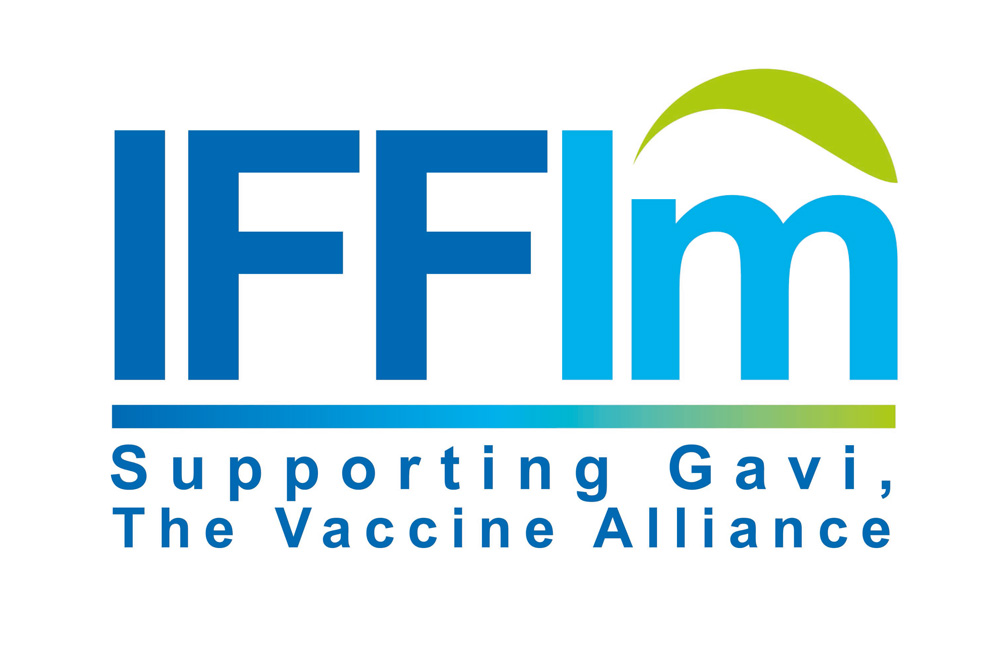Curbing rotavirus in coastal Kenya
- Impact
- Curbing rotavirus in coastal Kenya
Curbing rotavirus in coastal Kenya
6 September 2023

Coast general hospital in Mombasa. Credit: Diana Wanyonyi
Armed with vaccines, soap, and water, Mombasa is fighting back against the deadly diarrhoeal infection.
Armed with vaccines, soap, and water, Mombasa is fighting back against the deadly diarrhoeal infection.
By Diana Wanyonyi.
Announcements
IFFIm impact: Rotavirus
IFFIm supports rotavirus vaccines with over US$ 205 million in funding to Gavi.
Beatrice Mwajuma, the owner of a daycare centre in Mishomoroni, a Mombasa county suburb, was seated on the floor wiping and cleaning toys when VaccinesWork visited. The facility had been shut down by the health department in April, who suspected that an outbreak of the life-threatening diarrhoeal disease, rotavirus, had spread there.
Months later, Mwajuma remained puzzled. She ran the daycare by herself, she explained. Her clients were children below the age of four years. Before the outbreak, she used to take care of six children, from the morning until their parents or guardians picked them up again.

"I was taking care of them, teaching them how to use the toilet and teaching them how to speak. They used to come with their own packed food. One day there was a child who fell ill and was taken to hospital by the parents, but when he was taken from here he was well. Now I can't tell what happened. After some time, officials from the health department came and closed down my business. They investigated my tap water and I told them I don't have a water storage tank so I took them to where I buy mineral water," said Mwajuma.
Rotavirus is the leading cause of severe, dehydrating diarrhoeal disease in infants and young children worldwide. Mombasa county, on Kenya's coast, has suffered recurrent outbreaks recently, with ten children reported to have died in April.
Vaccine crunch
The virus spreads through the environment via contamination from infected faeces, making good hygiene vital to its containment. But other developments, probably unknown to Mwajuma, had made this year a year of elevated risk in Kenya.
In 2022, Kenya was among seven African countries hit by an unforeseen shortage of rotavirus vaccine doses. All of those countries faced consequent setbacks to their rotavirus immunisation programmes, with Kenya seeing a 68% decline in coverage.
"During our sensitisation process, many parents or guardians were not aware of the virus. Some were reluctant to let their children be vaccinated. It took us time to convince them, and I am glad it worked."
– Zena Katana, community health volunteer
The vaccine supply issues resolved, but the immunisation gap that had already opened paved the way for the outbreak of the diarrhoeal virus, Mombasa county Vaccine and Immunisation Coordinator Isaac Jewa explained.
"By the start of 2023, we witnessed the outbreak of the disease, and that time is when we received a new supply of vaccine from the National Vaccines and Immunization Program," Jewa said. "We switched from Rotarix vaccine – which was given two doses to a child – to Rotavac vaccine, which is administered three doses per child. The vaccine is the same; the only difference is the dosage. A newborn is given the vaccine when he or she reaches six weeks, ten weeks and 14 weeks."

Credit: Diana Wanyonyi
Rotavirus outbreaks are directly caused by poor sanitation and hygiene and contaminated drinking water, the health official explained. The county is fighting back on all fronts. "We are educating people on the need of maintaining cleanliness and keeping their environment clean. We are also chlorinating boreholes and water that people are using, and lastly, we are enhancing vaccination."
"We were afraid and devastated"
Triza Ochieng, a pharmacist and nurse, is employed at a chemist's shop attached to a clinic in Junda, the area that Mombasa governor Abdulswamad Sharrif Nassir told media was the cradle of the April outbreak. She was busy serving clients when VaccinesWork stopped by. While she worked, her third-born son played, greeting his mother's clients.
He had been among the many babies diagnosed with rotavirus early this year, but luckily – through the quick intervention of health providers and medics in Mombasa – he recovered well. He was then one year and four months old. Ochieng recalled that he vomited "endlessly".
"My baby likes eggs so much, so I decided to prepare some for him. He vomited – I thought he did not feel like eating, so I gave him porridge. He vomited again. The following day he started to have diarrhoea, the faecal colour was yellow and it smelled very bad.
"When he drinks water, he vomits it. It was difficult for us – the baby was very uncomfortable, and he was crying and rolling on the floor with his stomach. We were afraid and devastated. I put him on a drip so he could stop vomiting, but it continued. I gave him some medicines but he never responded to them. As a family, we were crying, it was bad. Luckily, community health volunteers were moving from door to door to alert and educate the public about rotavirus. That is when they informed me that my son was infected. We were referred to the hospital. That is when our son was put on drugs and he started responding well," she recounted.
Beating back the virus
Though the virus spread quickly, the county has been able to respond by scaling up public sensitisation, tasking the public health department to conduct vaccination exercises in all public hospitals – Jewa explains the vaccine is also available via private providers – and deploying nurses and community health volunteers to help with the crisis.
Zena Katana is one of the community health volunteers in Junda, who went house to house with her colleagues to sensitise the public on the need for rotavirus vaccination for children under five. "I am happy to see many children are brought to Junda dispensary so that they can be given rotavirus vaccine," she said. "During our sensitisation process, many parents or guardians were not aware of the virus. Some were reluctant to let their children be vaccinated. It took us time to convince them, and I am glad it worked."
Already more than 8,000 children have been vaccinated in Mombasa county after the stocks of the vaccine became available this year. That number, however, falls short of the county ambitions, according to Jewa. "We have not met our targeted percentage coverage of vaccinated children. We are targeting to vaccinate 9,000 children every month."
The health department is following up on the children who are yet to be vaccinated, and keeping tabs on children who are under the vaccination programme.
Meantime, in some areas of the county, youths have been deployed as casual labourers to clean the streets, while a campaign to chlorinate wells and boreholes continues.
And at Coast General Teaching and Referral Hospital, the largest public facility in coastal Kenya, situated in the heart of Mombasa, soap and water are a vital adjunct to good medicine.
For Agnes Mukhwana, one of the hospital's cleaners, the day begins in the wee hours of the morning, when there are barely any patients or visitors populating the corridors.
She has worked here for more than seven years, and understands, more than most, the importance of good hygiene. "Many people come to hospital on a daily basis, so to be safe, we ensure that we do thorough cleaning inside the wards, corridors, pathways and also around sitting areas. We use clean water, soap, and disinfectant," she said.

|
This article is republished from VaccinesWork under a Creative Commons license. Read the original article. VaccinesWork is an award-winning digital platform hosted by Gavi, the Vaccine Alliance covering news, features and explainers from every corner of global health and immunisation. |
Share this article
Restricted Access Library
 The material in this Restricted Access Library is intended to be accessed only by persons with residence within the territory of a Member State of the European Union and is not intended to be viewed by any other persons. The material in this Restricted Access Library is provided by IFFIm for information purposes only and the materials contained herein were accurate only as of their respective dates. Certain information in the materials contained herein is not intended to be, and is not, current. IFFIm accepts no obligation to update any material contained herein.
The material in this Restricted Access Library is intended to be accessed only by persons with residence within the territory of a Member State of the European Union and is not intended to be viewed by any other persons. The material in this Restricted Access Library is provided by IFFIm for information purposes only and the materials contained herein were accurate only as of their respective dates. Certain information in the materials contained herein is not intended to be, and is not, current. IFFIm accepts no obligation to update any material contained herein.
Persons with residence outside the territory of a Member State of the European Union who have access to or consult any materials posted in this Restricted Access Library should refrain from any action in respect of the securities referred to in such materials and are otherwise required to comply with all applicable laws and regulations in their country of residence.
By clicking Access restricted content: DYNAMIC-LINK-TEXT I confirm that I have read and understood the foregoing and agree that I will be bound by the restrictions and conditions set forth on this page.
The materials in this Restricted Access Library are for distribution only to persons who are not a "retail client" within the meaning of section 761G of the Corporations Act 2001 of Australia and are also sophisticated investors, professional investors or other investors in respect of whom disclosure is not required under Part 6D.2 of the Corporations Act 2001 of Australia and, in all cases, in such circumstances as may be permitted by applicable law in any jurisdiction in which an investor may be located.
The materials in this Restricted Access Library and any documents linked from it are not for access or distribution in any jurisdiction where such access or distribution would be illegal. All of the securities referred to in this Restricted Access Library and in the linked documents have been sold and delivered. The information contained herein and therein does not constitute an offer for sale in the United States or in any other country. The securities described herein and therein have not been, and will not be, registered under the U.S. Securities Act of 1933, as amended (the "Securities Act"), and may not be offered or sold in the United States except pursuant to an exemption from, or in a transaction not subject to, the registration requirements of the Securities Act and in compliance with any applicable state securities laws.
Each person accessing the Restricted Access Library confirms that they are a person who is entitled to do so under all applicable laws, regulations and directives in all applicable jurisdictions. Neither IFFIm nor any of their directors, employees, agents or advisers accepts any liability whatsoever for any loss (including, without limitation, any liability arising from any fault or negligence on the part of IFFIm or its respective directors, employees, agents or advisers) arising from access to Restricted Access Library by any person not entitled to do so.
"Relief" for mothers in Bayelsa state as malaria vaccine makes waves
07 November 2025
